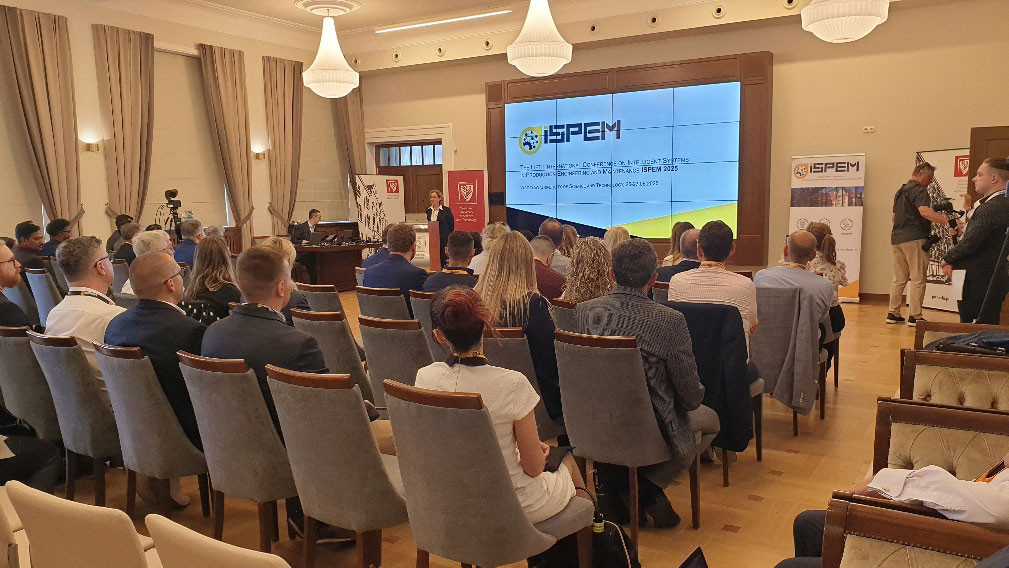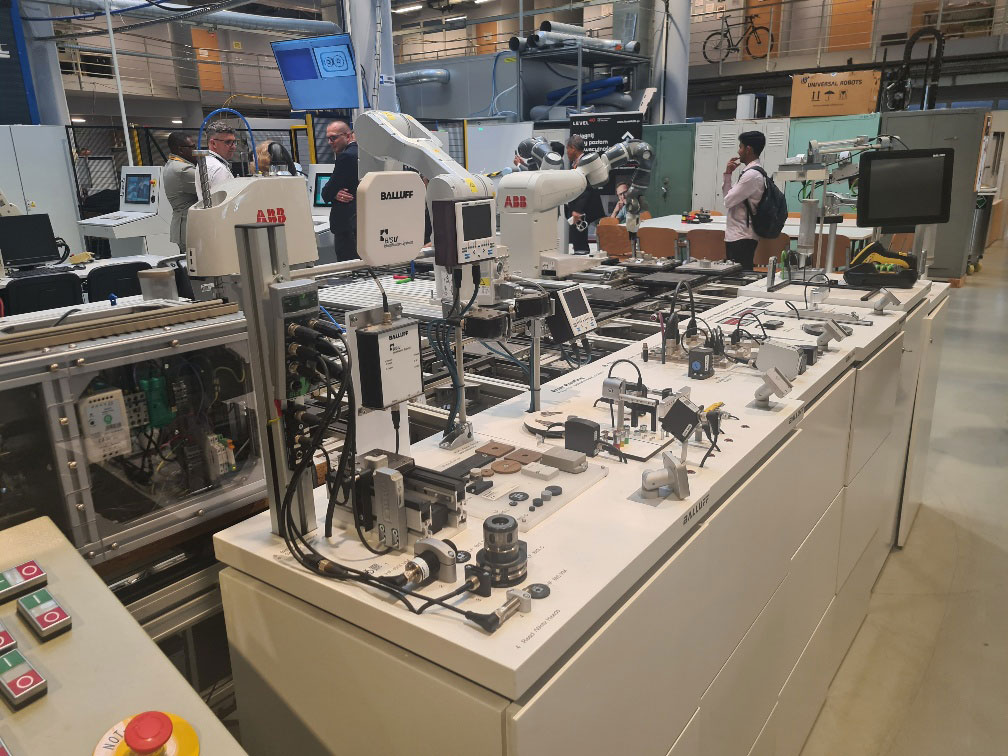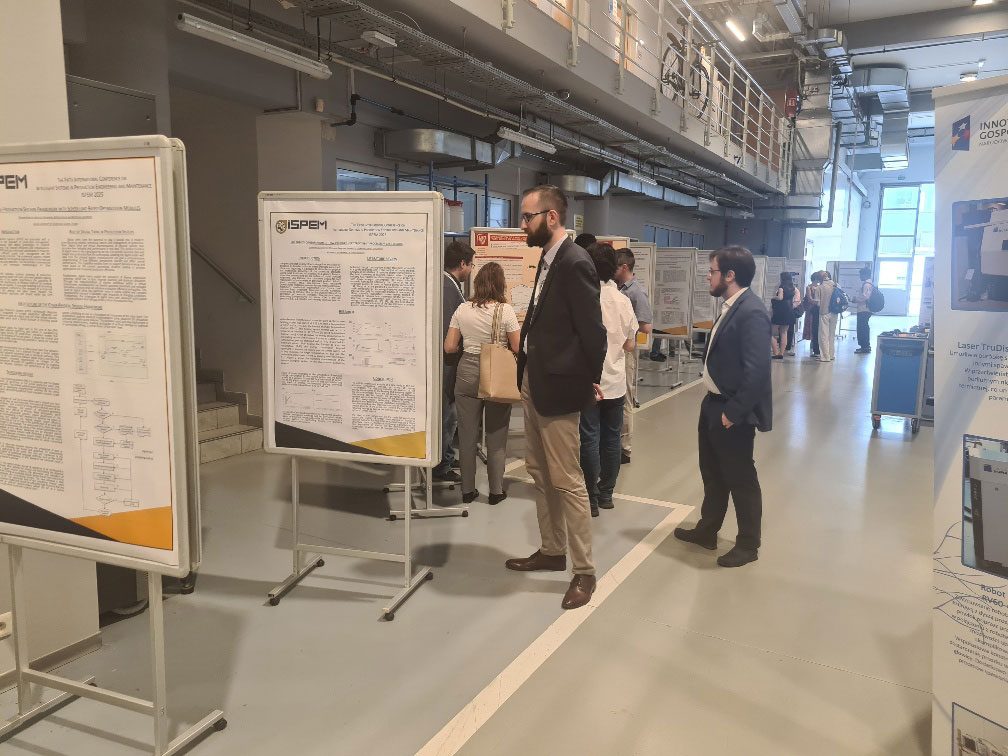An international conference on intelligent systems in production engineering and maintenance (ISPEM 2025) was held in Wrocław on June 25-27, 2025.
The conference brought together a large group of scientists and practitioners from around the world, and its program included plenary and thematic sessions and accompanying events.

The event featured plenary sessions led by world-class industry leaders, presentations from innovative companies showcasing solutions based on intelligent systems, and an international scientific debate on the challenges of implementing artificial intelligence in the manufacturing sector. The discussions addressed issues of innovation, productivity, workforce transformation, and the ethical aspects of AI implementation. Participants also had the opportunity to familiarize themselves with the university’s research facilities through tours of the modern laboratories of Wrocław University of Science and Technology.

Our research team presented a paper on the application of a novel neural network architecture to image reconstruction from electrical measurement data in industrial tomography applications. The presentation discussed the concept of a multi-branch network structure equipped with a differentiation mechanism that supports the detection of subtle signal changes. The research results demonstrate a clear advantage of the proposed method over more traditional techniques, both classical and machine learning-based. Based on the obtained image metrics, the new method improves reconstruction accuracy. The conclusions support further development of the studied architecture, particularly for three-dimensional applications and real-time data processing integration.

Participating in the ISPEM 2025 conference was an incredibly valuable experience. It allowed me not only to present my own scientific achievements internationally but also to become familiar with the latest research directions in the field of intelligent manufacturing systems. Topics covered during the sessions, including digital twins, artificial intelligence in process planning, quantum technologies, and sustainable production, define the main development trends for contemporary industry.

